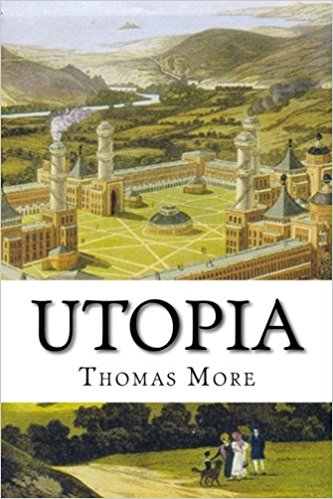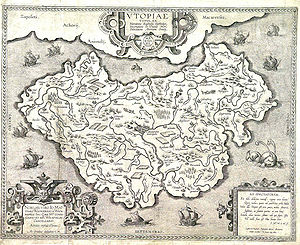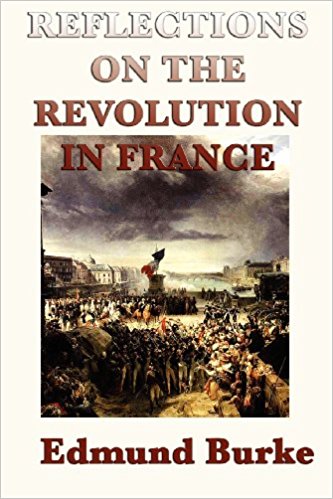|
Utopia by Sir Thomas More Published in 1516 135 Pages Thibault’s Score: 3/5 My whole life, I have heard people use the word “Utopia” (which means “not a place” in Greek), but had never read the book which coined the word. The book describes a fictional republic with a perfect political system. The entire book takes the form of a dialog between a British man and a traveller, Raphael, who has returned from Utopia. Considering that the book was written in 1516, I found it to be very clear and well written. Like many authors of his time, More writes in a style that requires the reader to pay attention on every word and skip nothing. Although Raphael makes Utopia sound like a wonderful place, I would absolutely hate to live in the state which is described. The characters talk about Utopia as if it is a wonderful place, but in fact describe a society which, by modern terms, can only be understood as dystopian communism. The economy of Utopia is completely centrally planned.There is no private property, instead the government decides everything. Every city has the same amount of resident, and people are moved around in order to keep the size of the cities balanced. All citizens are assigned homes and aren’t allowed to keep any home for more than a decade. People have no freedom to chose their own jobs, with some exceptions for prodigies who are misaligned. Work is mandatory. There is a welfare state, complete with voluntary euthanasia to keep the costs down. All the poor and disabled are supplied and provided for by the fit and able. All meals are served in communal dining halls. Utopia can also be seen as an early example of feminist literature. More predicts many rights for women in Utopia that wouldn’t be implemented in Europe for another 300 years. Women enjoy the right to divorce their unfaithful and degenerate husbands. Women have the right to hold religious offices, and some are even trained as soldiers. There are, however, still patriarchal institutions in society. For example, grooms can inspect their brides naked bodies before marriage to make sure that they have no hidden deformities. (Makes me wonder if Thomas More’s wife had some hidden deformities) There are also many aspects of Utopian society which would be viewed as absolutely reprehensible by modern communists, although these transgressions can be forgiven because of the time and context that the author lived in. For example, Utopia has a very large population of slaves, mostly criminals and captured enemy combatants. Premarital sex is punished by enforced celibacy and adultery is punished by slavery. The idea of a totalitarian Utopia dates back to Plato’s “The Republic” (which I am reading next), and understanding the history of failed Utopias puts modern Marxism into context.
Like all communist dreams, Utopia is flawed not in execution but also in conception. Although the people are well provided for, they lack freedom and adventure. Their lives are controlled and regulated, there are no options or ways out for nonconformists and rebels. Freedom aside, Thomas More, like all communists, ignores the much more practical problems of scarcity and poor incentives. To me the most interesting aspect of the book was discovering that totalitarian communist dream which was attempted in the 20th century had been fully conceptualized by the 16th century. This book is worth reading for people who are interested in understand modern Marxism and its intellectual roots.
1 Comment
Reflections on the Revolution in France
by Edmund Burke Published in November 1790 252 Pages Thibault’s Score: 3/5 Edmund Burke is one of those people who is often quoted but rarely read. I didn’t want to be one of those ignoramuses, decided to read quite a bit of Burke over the years. I’ve read numerous fragments and essays, but never sat down and systematically tackled his work. Now I know exactly why he isn’t very often read anymore. Burke’s writing style hasn’t aged very well at all - I found it to be repetitive and slow paced. Like many authors of his time, he writes long sentences that are much slower to read. Despite the aged writing style, the content of the book is very relevant and extremely interesting. I strongly recommend laypeople read the cliff notes / summarized version of this book but don’t recommend spending much time reading it. The spread of revolutionary ideas from the Americas combined with the socioeconomic stress of colonialism had stretched France’s resources thin. As a result, in 1789 a series of crisis occurred including mass protests, the formation of a new revolutionary government, and the storming of key government garrisons like the Bastille. Burke argues that because the legitimacy of the French monarchy was caused by divine authority, the atheism of the enlightenment had delegitimized the French monarchy. Burke concludes that the problems of the French Revolution are inherit in the nature of revolutions. Mob rule and egalitarian dreams challenge traditional institutions which puts society at risk. Traditional institutions, simply by virtue of their age, have had to wither many challenges and often offer good solutions. Burke instead suggests gradual change, and advises political leaders not to succumb to the temptations of frustration. In the case of France, history proves Burke right. Several years after publishing the book came a time known as the Reign of Terror (1793 - 1794) where roughly 17 thousand political dissidents were beheaded. A lesser known atrocity which was covered up by later governments was that Revolutionary France also successfully carrier out an ethnic cleansing in the region known as Vendée, where it is estimated that as many as 250 thousand civilians were murdered. The province of Vendée was inhabited by a distinct cultural group with a unique language which remained loyal to the king of France. After the genocide, the local language has almost entirely disappeared. In light of what is currently happening on the internet and on college campuses, and in light of the current struggles of the Western Millennials, this book is ever more relevant. I myself was a young revolutionary and works by conservative authors like Burke have brought me to my senses. I advise my millennial revolutionary friends, both on the left and the libertarian right to be cautious and fully think out the implications of a revolution. Edmund Burke’s legacy has survived. He is now viewed as the founding father of conservatism, and his legacy is the modern right. |
Thibault SerletMost of my articles are book reviews, but I also write about many other topics. Archives
December 2023
Categories |



 RSS Feed
RSS Feed